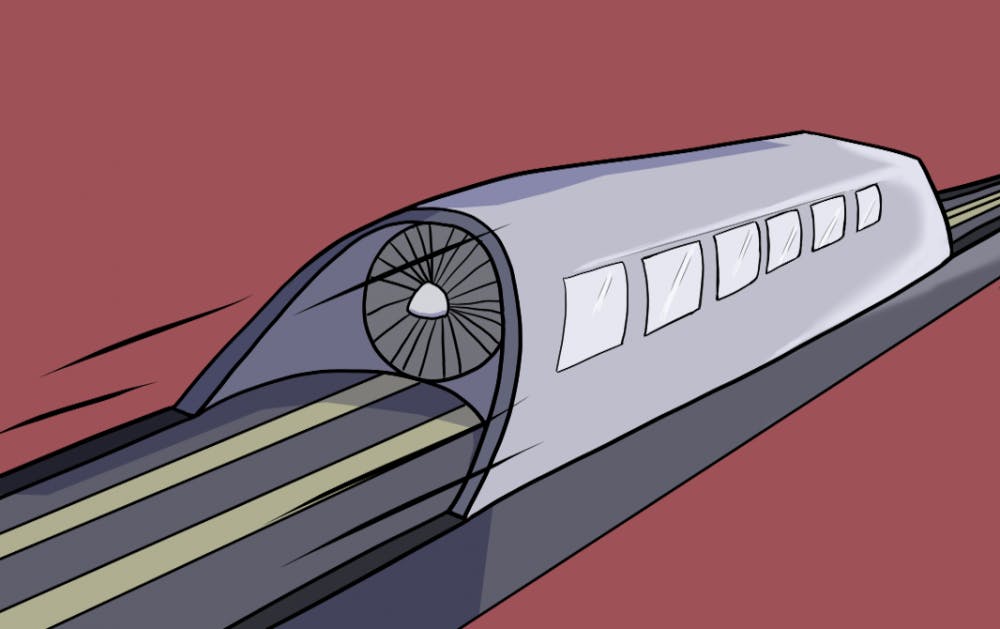AZLoop is gunning to win this year’s Hyperloop Pod Competition, hosted by SpaceX, on Sunday, July 22.
The team is made up of graduate and undergraduate students from a variety of fields and representing Embry-Riddle and ASU. AZLoop is one of just 18 teams competing from universities around the world, including teams from Switzerland, Ireland and Spain.
Hyperloop is an idea for mass public transit that was widely publicized after SpaceX Founder and CEO Elon Musk advocated in 2013 for Hyperloop Alpha, a system connecting Los Angeles and San Francisco.
The word ‘hyperloop’ does not refer to any individual company, but rather a class of transportation systems characterized by a vacuum-pressurized tube through which a high-speed rail passes at hundreds of miles per hour. The gist of the idea is to move many people from one place to another over vast distances in relatively little time.
The idea is not without its critics, as the often controversial Musk has been accused of making the idea sound easier to execute than it really is.
Until recently, there have been no true hyperloop systems under construction. However, Virgin Hyperloop One, a California-based company, just received the contract for a project in China. Musk is also planning for The Boring Company, his most recently founded business, to dig a hyperloop tunnel between Washington, D.C. and New York City.
As part of Musk’s desire to spark interest and ingenuity in the growing field of hyperloop systems design, SpaceX began hosting a series of hyperloop pod design competitions last year. Sunday’s event is the last stage in this year’s competition.
Not every team will have the opportunity to test its pod on Sunday. Due to time constraints and logistical considerations, only three teams will actually be able to demonstrate their pods’ performance.
AZLoop is currently at the SpaceX headquarters in Hawthorne, California, working around-the-clock to ensure it will be one of those three teams. Winning a spot in Sunday’s competition will allow the public to see the result of thousands of hours of labor by the team’s 83 members.
“So far, we feel pretty good about it,” Team Spokesperson Elvis Leon said. “There are a few teams that are ahead of us, but they’ve also been running into issues.”
Leon said many individual team members sleep only three hours per day and work from the time they wake up until the time they go to bed. They create shifts to determine who will do each task necessary to prepare for Sunday’s competition.
Although many Americans are itching to use a hyperloop system, which could be many times faster than Amtrak or a comparable rail service, the pods being tested Sunday will never be used in a real-world system. For one, they are built at a smaller scale than what would realistically be used.
Leon said the point of the competition is more to generate ideas about hyperloop in small groups of young engineers, to show the feasibility of the system (which has been criticized as being unrealistic) and also to highlight the team members’ ingenuity.
“If we win, we get credit,” Leon said. “I’m hoping a lot of the members get job offers. Because we’re not doing this for money. We’re doing it because we’re passionate about hyperloop and what it can become.”
Reach the reporter at parker.shea@asu.edu or follow @laconicshamanic on Twitter.
Like The State Press on Facebook and follow @statepress on Twitter.




